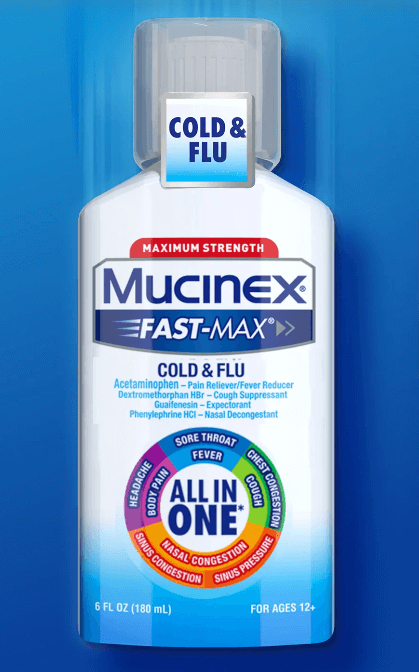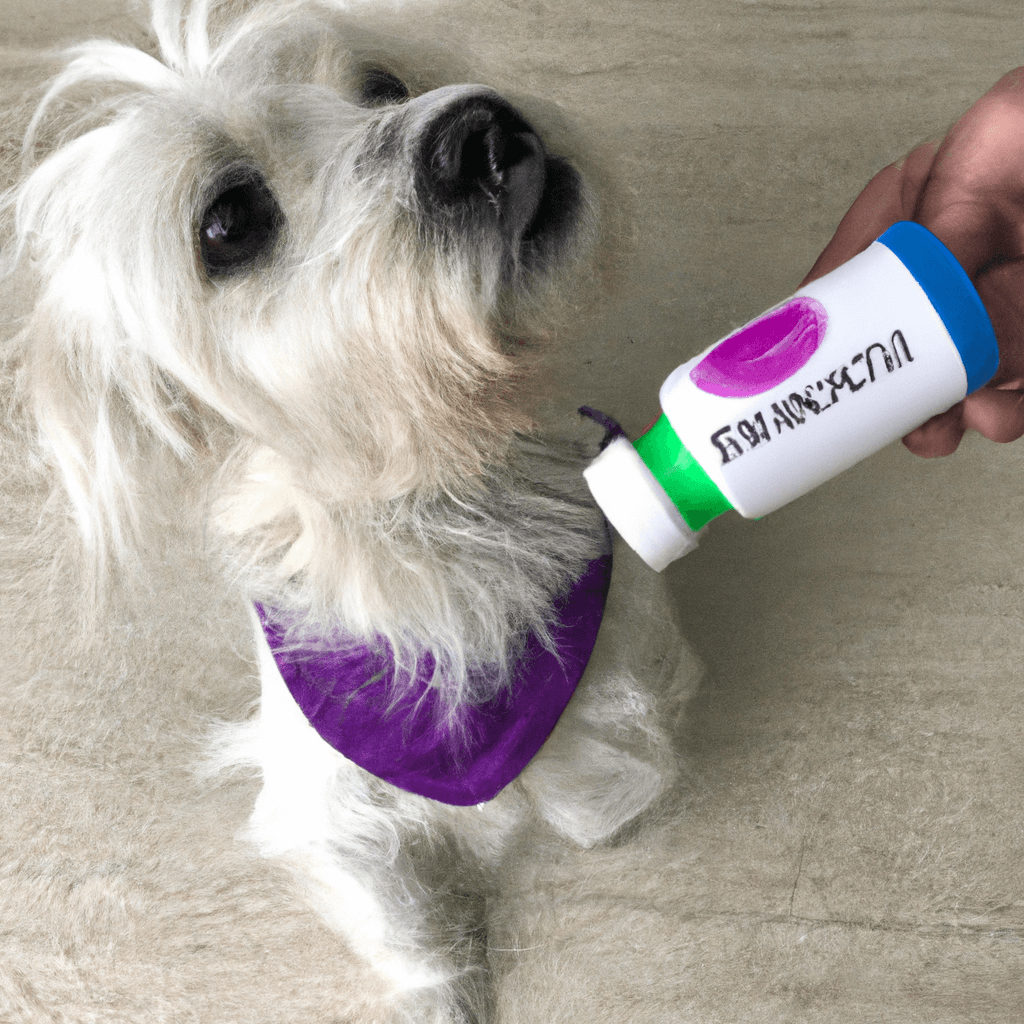Mucinex is a popular over-the-counter medication used to treat congestion, coughing, and other respiratory issues. Can you give a dog mucinex? It is widely used in humans, but you may be wondering if it is safe for your dog. In this article, you will learn about the potential benefits and risks of giving your dog Mucinex, as well as other tips for giving your pup relief from respiratory issues.
Is it Safe to Give a Dog Mucinex?
No, it’s not safe to give a dog Mucinex. Mucinex is an over-the-counter medication used to treat cold and flu symptoms in humans, but it can be dangerous for dogs. Mucinex contains the active ingredient guaifenesin, which can be toxic to dogs if ingested in large quantities.
It can also cause stomach upset and even an allergic reaction in some dogs. So, if your pup is feeling a bit under the weather, it’s best to avoid giving them Mucinex and instead consult your veterinarian for proper treatment.

How Can Mucinex Help Dogs with Coughing or Sneezing?
Mucinex isn’t typically recommended for dogs, as it’s an over-the-counter medication created for humans. If your pup is coughing or sneezing, it’s important to get them checked out by a vet first. That way, you can determine what’s causing the problem and get your pup the best treatment.
Certain types of Mucinex may be safe for dogs in certain situations, however. Before you give your dog any kind of medication, it’s crucial to check with your vet beforehand. Your vet may recommend certain forms of Mucinex as a temporary solution, depending on your dog’s health and the type of cough or sneeze they’re experiencing.
It’s also important to remember that Mucinex is a decongestant, not a cough suppressant. This means it may be able to help reduce congestion, but it won’t necessarily help with the underlying cause of the coughing or sneezing. It’s also important to note that Mucinex can be dangerous for dogs if not administered correctly.
It can cause side effects such as upset stomach, diarrhea, and vomiting. In conclusion, it’s best to talk to your vet before giving your pup Mucinex. If it’s deemed necessary, be sure to follow the vet’s instructions carefully.
What Are the Benefits of Giving a Dog Mucinex?
Giving your dog Mucinex can be extremely beneficial for them in many ways. Mucinex is a type of medication that contains an ingredient called guaifenesin. This ingredient helps to break down mucus and makes it easier for your dog to cough it up.
This can be especially helpful if your pup has a chesty cough or has been diagnosed with kennel cough or bronchitis. Mucinex can also help to reduce inflammation and congestion in the upper respiratory tract. This can help to ease your pup’s breathing and make them more comfortable.
Additionally, Mucinex can be used to help treat allergies in dogs. If your pup is suffering from allergies, a dose of Mucinex can help to reduce the inflammation and irritation caused by the allergens. Finally, Mucinex can help to loosen any phlegm or mucus that is stuck in your pup’s airways.
This can help to make it easier for them to breathe and reduce their coughing and sneezing. Overall, Mucinex can be a great option for helping to treat a variety of respiratory issues in dogs.
It can help to reduce inflammation, loosen mucus, and make your pup more comfortable. If you think that your pup might benefit from taking Mucinex, be sure to talk to your vet to make sure that it is the right choice for them.

What Are the Risks of Giving a Dog Mucinex?
Giving a dog Mucinex can be risky and is not generally recommended. While Mucinex is an over-the-counter medication used to treat congestion and other cold and flu symptoms in humans, it is not approved for use in animals.
Mucinex contains guaifenesin, an expectorant that helps loosen mucus and makes it easier to cough up and expel. This can be dangerous for a dog’s respiratory system and can cause serious side effects like vomiting, diarrhea, and even death. If your dog has a cold or flu, it is best to talk to your veterinarian about the best course of treatment.
Your vet can provide you with a safe and effective medicine that is specifically designed for your dog’s needs. In some cases, antibiotics may be prescribed; however, in most cases, a combination of rest, increased fluids, and a diet rich in protein and fat can help your dog recover quickly.
It is important to remember that giving a dog Mucinex without consulting a vet can be dangerous and may even be fatal. As always, the best thing to do is to talk to a veterinarian before giving any medication to your dog.
How Can You Tell if Your Dog Has a Cold and Needs Mucinex?
If your dog is showing signs of a cold, there are a few signs that you can look for to determine if they need Mucinex. First, check for any discharge from the nose or eyes. This might be a sign of a cold or upper respiratory infection. If the discharge is thick and yellow or green, it could indicate a bacterial infection and your pup may need medication.
You should also look out for sneezing, coughing, reduced energy levels, and decreased appetite as these can all be signs of a cold. If you think your pup has a cold, it’s best to take them to the vet for a check-up. The vet may prescribe Mucinex or other medication to help your pup recover quickly.
What Should You Do if Your Dog Has a Cough and You Suspect Mucinex Is the Cause?
If you suspect that your dog’s cough is due to Mucinex, the first thing you should do is take your dog to the vet. A vet can assess your pet and determine the cause of the cough. They can then provide you with the most appropriate course of treatment.
If the vet confirms that Mucinex is the cause, they may recommend that you stop administering the medication and monitor your dog’s symptoms. Depending on the severity of the cough, the vet may also suggest additional treatments such as antibiotics or steroids.
It is important to remember that Mucinex can have serious side effects in dogs, so it is important to only use it as directed by your vet. If you are ever in doubt, it is always best to seek professional advice before administering any medications to your pet.
Is Mucinex Safe to Give to Puppies?
No, it is not safe to give Mucinex to puppies. Mucinex is a type of medication used to treat the symptoms of a variety of conditions, including colds, allergies, and sinus infections. It contains a combination of acetaminophen and guaifenesin, both of which are potentially toxic to puppies.
Acetaminophen can cause liver damage and even death in puppies if ingested in large amounts. Guaifenesin can cause vomiting and diarrhea in puppies. If your puppy is experiencing any of the symptoms associated with the conditions mentioned above, it is important to consult a veterinarian first. Your vet can provide a safe and effective treatment plan that is tailored to your puppy’s health needs.
What Are the Side Effects of Giving a Dog Mucinex?
Giving a dog Mucinex can have some side effects, so it’s important to monitor your pup closely if you do decide to administer it. Possible side effects can include vomiting, diarrhea, loss of appetite, and depression.
Additionally, some dogs may experience an allergic reaction to the medication, which can lead to hives, swelling, difficulty breathing, and anaphylaxis.
While these side effects are rare, it’s important to be aware of them and be prepared to take immediate action if any of them occur. If your dog is showing signs of an allergic reaction, contact your veterinarian immediately.
If you notice any other side effects, such as vomiting, diarrhea, or loss of appetite, contact your veterinarian as soon as possible and discontinue the medication. It’s also important to follow your veterinarian’s instructions carefully and never give your dog more than the recommended dosage.
What Are the Alternatives to Giving a Dog Mucinex?
If you’re looking for alternatives to giving your dog Mucinex, there are a few options you can explore. One of the most popular alternatives is to give your pup a natural remedy such as honey or garlic.
Both of these have anti-inflammatory properties that can help to reduce mucously and provide relief from congestion. You can also give your pup a steam bath, which can help to clear out their airways and make breathing easier.
You can also try a saline nasal spray, which can help to reduce inflammation and make breathing easier. Finally, some people opt to give their dog a natural supplement such as fish oil, which can help to reduce inflammation and help the immune system.
How Can You Tell if Mucinex Is Working for Your Dog?
It can be difficult to tell if Mucinex is working for your dog, but there are a few ways you can tell. First, look for a decrease in coughing. If your dog is coughing less, it’s likely that the medication is doing its job. You should also look for a decrease in mucus production. If your dog’s nose is less runny, it could be a sign that the medication is working.
Another way to tell if Mucinex is working for your dog is to check for improved breathing. If your dog’s breathing is more regular and less labored, it could be a sign that the medication is helping. Finally, look for a decrease in sneezing.
If your dog’s sneezing has decreased, it could be a sign that the Mucinex is helping. If you’re still not sure if the Mucinex is working for your dog, it’s best to consult with your veterinarian. They can provide more personalized guidance and help you determine the best course of action for your pup.
In conclusion, it is generally not recommended to give a dog Mucinex due to the potential side effects they may experience. It is best to consult with a veterinarian before giving a dog any medication. Additionally, if a dog is experiencing any signs of respiratory illness, it is important to seek veterinary care immediately.




